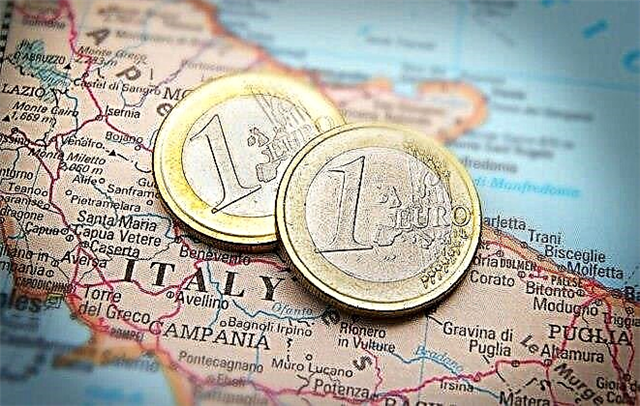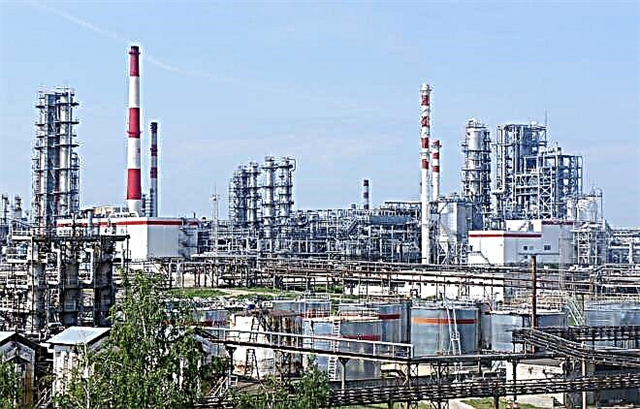Industrial enterprises occupy a key position in the development of the economy of any state. They provide the population with the necessary products, goods and equipment. Industry in Bulgaria is no exception. It is represented by a wide range of industries, which guarantees the country active development, independence and competitiveness in the world market.

Fuel industry in Bulgaria
The main local resource is low-calorie lignites with significant ash and sulfur content. This type of coal is considered to be of low quality. It is used mainly in large thermal power plants located in the regions adjacent to the quarries.
The main deposits of the rock are located in the east and north-east of the country. The number of deposits of high-quality brown coal is insignificant. As for oil, its natural reserves in the country are so small that they have no industrial value.
Compared to other European countries, Bulgaria is most dependent on energy imports. The country is actively importing oil, oil products, coal, natural gas from Russia, OPEC countries and the CIS. In addition, about one seventh of the electricity consumed by the country is imported into the territory of Bulgaria.
Both ferrous and non-ferrous metallurgy are developed in the country. However, their performance indicators are strikingly different.
Non-ferrous metallurgy is successfully developing due to the stable growth of world prices for non-ferrous metals. The country exports a significant amount of copper, lead and zinc alloys, gold, sulfuric acid and cadmium.
Leading non-ferrous metallurgy companies in Bulgaria.
Processing of copper ores:
- Mining and processing plant Assarel-Medet (Panagyurishte);
- Copper plant "Aurubis Bulgaria" (Pirdop).
Production of zinc, refined lead and tin:
- Combine KZM 2000 (Plovdiv);
- Tin-zinc complex "OCK" (Kardzhali).
Aluminum alloy production:
- Stam Trading (Panagyurishte).
Battery Manufacturing and Lead Waste Recycling:
- "ELBAT" (Dolna Banya).
The largest deposits of valuable non-ferrous metals in Bulgaria are:
- Etropole-Zlatitsa-Pirdop (Stara Planina mountains, Sofia region) (75.3 thousand tons of copper ore for 2021);
- Krumovgrad (Rhodope Mountains, Kardzhali region) (315 thousand tons of copper ore in 2021);
- Eastern Rhodopes (28 thousand tons of lead ore in 2021).
The ferrous metallurgy in Bulgaria has not received active development, since the ore deposits in the country are rather poor in iron - no more than 30%.
The largest enterprises for the processing of ferrous metals in the Republic of Bulgaria are:
- Hus;
- Hrom;
- HeliosMetalurg;
- Stomana Industry;
- "Promet Steel";
- "PIKh Industry";
- Leyarmash;
- "VMV Metaloleene";
- "Progress";
- Radomir Metal Industries;
- Energoremont;
- Chugunoleene Invest;
- Berg Montana Fittings;
- "Lives".
The most significant deposits of ferrous metal ores are located in the Sofia-Pernik industrial region and in the Burgas region.
The closure of the largest enterprise, Kremikovtsi AD (JSC), was a serious blow to the industry. After that, the ferrous metallurgy in Bulgaria acquired a negative balance (imports exceeded exports).
Automotive development
According to experts, the automotive industry in Bulgaria will actively develop in the next few years. Already, it is planned to organize large industrial zones in the region of three cities: Sofia, Burgas, Vidin. The growth in production will give the country 45,000 new jobs. In 2021, the rate of development of the country's automotive industry exceeded the rate of development of metallurgy, the IT sector, and even tourism.

However, the Bulgarian car industry needs active support from the government and foreign partnerships.
Energy in modern RB
As of 2021, the country produces 48.4 billion kWh. The total capacity of the power plants is 11.84 thousand MW. Electricity production is carried out at thermal power plants, nuclear power plants and with the help of alternative energy sources. The needs of the population are fully met. Some are exported.
The largest Bulgarian thermal power plants:
- "Maritza-Iztok-2";
- "EY AND EC G'lbovo";
- "Enel Maritsa-Iztok-3";
- Bobovdol;
- Toplofication of Rousse.
The Kozloduy and Belene nuclear power plants operate in the country (in 2021, work was suspended).
The largest hydroelectric power plants are the Chaira PSPP, the HPP cascades in the Rilo-Rhodope mountain range, the Belmeken-Chaira HPP-PSPP complex.
An example of the use of alternative energy sources: the Sveti Nikola wind farm. In addition, Bulgaria is actively using solar energy, geothermal and biomass.
Agricultural development in Bulgaria
At the end of the XX century. a number of negative factors led to a decrease in the volume of agricultural production in the country:
- active division of agricultural land into small plots;
- reduction in investment;
- deterioration of the material and technical base.
All this led to the loss of traditional markets for local producers.
Since the beginning of the 2000s. agriculture in Bulgaria received a new impetus in development. The process of consolidation of farms with simultaneous modernization has begun. Due to the development of crop production, the volume of production increased.
Small-scale producers continue to dominate in horticulture, livestock and vegetable production. The fishing industry is poorly developed, as it depends on imported raw materials.
Chemical industry
In general, the volume of production of chemical and petrochemical products in the country is small. This is due to the lack of a sufficient volume of our own raw materials. But there are large enterprises, including those with foreign partners.

The largest enterprises of the chemical industry in Bulgaria:
| Company | Produced goods |
|---|---|
| LUKOIL-Neftokhim | Petrochemistry |
| "Agropolihim" | Phosphate and nitrogen fertilizers |
| "Solvay Soda" | Soda ash |
| Kauchuk | General mechanical rubber goods, synthetic rubber |
| "Embul" | Rubber and plastic products |
| Aroma, Balkanpharma and Sopharma | Pharmaceuticals, perfumery, cosmetics, detergents |
It is pharmaceutical and perfumery and cosmetic products that are exported by Bulgaria to other countries.
Bulgarian food and light industry
Light industry enterprises provide products to local consumers and provide goods for export. In particular, textiles, footwear and garments are exported, which is about 20% of its value.
The main centers of textile production are Sliven, Sofia, Plovdiv, Varna, Gabrovo, Panagyurishte.
The most famous factories are Safil and Miroglio Group, Kris, Brilliant, Flavia.
The Bulgarian food industry is a large number of enterprises of various directions, from the production of canned food to the manufacture of tobacco products. Having experienced decline at the end of the twentieth century, since the 2000s. the food industry is booming again. As with many other industries, there are a large number of partner industries.
The largest food processing enterprises in Bulgaria:
| Products and services | Enterprises |
|---|---|
| Tobacco products | Bulgartabac Socotab Group |
| Processing of meat and milk | Bella Food Industry Danone |
| Flour and bakery products | Sofia Mel. |
| Confectionery | Ferrero Group Nestlé |
| Wine and beer | Belvedere Heineken StarBev Group |
| Soft drinks | Coca-Cola |
Other branches of the Bulgarian industry
Other industries have also developed in Bulgaria, where active cooperation is also underway with foreign investors and partners from the euro area.
- Timber industry. Most of the enterprises are concentrated in the Rhodope and Sofia regions.After the termination of timber supplies from the Russian Federation in the 2000s. production volumes fell sharply.
- Mechanical engineering. There are shipbuilding enterprises in the country, trolleybuses, trams, forklifts, power equipment, refrigerators and freezers, cable products and agricultural machinery, machine tools are assembled. In part, they constitute the modern export of Bulgaria.
- Manufacturing and extraction of building materials. These are mainly sand, gravel, bentonite, gypsum, marble, glass.
Territorial and industrial complexes in the Republic of Belarus
Several large industrial complexes have historically developed on the territory of Bulgaria, on which the economy of the state is based:
- Sofia-Pernishky. It is the largest. Leading industries are ferrous and non-ferrous metallurgy, chemical, mechanical engineering.
- Plovdiv-Pazardzhik. The second largest in the country. Main industries: mechanical engineering, furniture and woodworking, chemical and textile industries.
- Starozagorsko - Dimitrovgradsky. Leading industries: chemical, textile, mechanical engineering, building materials production, power generation, coal mining.
- Varna-Devnensky. The chemical industry has reached the highest level of development here. Also developed are mechanical engineering, production of textiles and garments, electricity / heat, building materials.
- Burgasco-Kamensky. The petrochemical industry is in the first place here. In addition to it, woodworking and cotton production are developed.
- Gabrovsko-Velikotyrnovsky. The first place is taken by light industry enterprises, as well as metalworking and mechanical engineering.
Conclusion
Most of the industrial goods that Bulgaria produces provide the domestic market of the country and are partially exported. Since the 2000s. there is an active development of agriculture, automotive, food and light industries. However, the country practically does not have its own fuel resources. In addition, most of its large enterprises depend on foreign partnerships.











